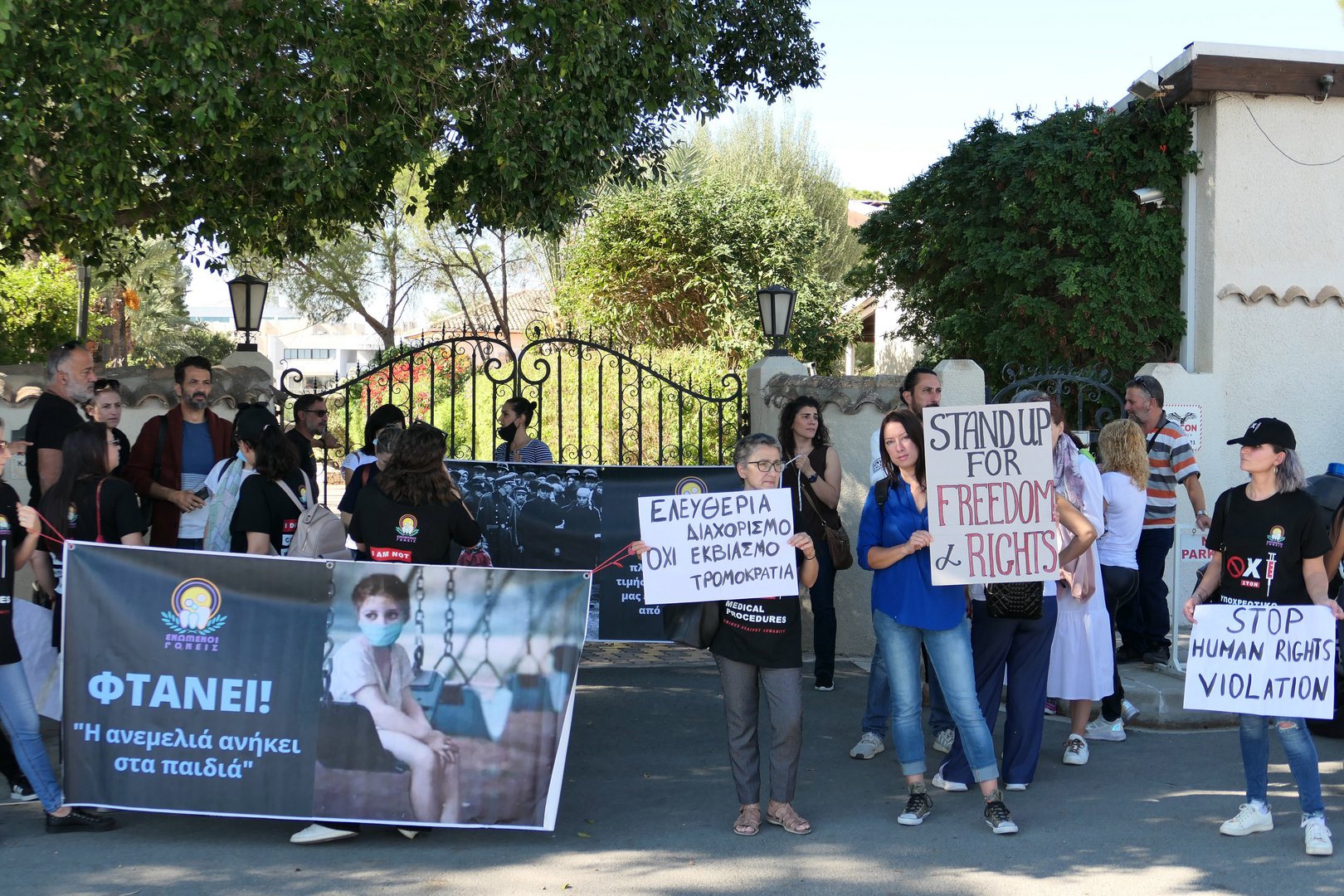Protesters on Thursday decried what they say is an unconstitutional and ‘monstrous’ bill which seeks to update the near century old infectious disease law by which the government has ruled by decree to deal with the pandemic.
Organisers, United Parents of Cyprus were joined by Alarm Call and others who gathered outside the Filoxenia Conference Centre (where parliament is currently being seated) in Nicosia with placards and shouted slogans against the bill.
“We are gathered here at parliament to peacefully demonstrate against the violation of our constitutional rights and freedoms,” said Alexios Savvides, of the Isotita (Equality) trade union.
“We declare that we will move against this with all our might to prevent the violation of democracy.”
The bill itself was discussed by MPs on October 21, some of whom said at the time that it had ‘gaps and weaknesses’ and affected human rights to ‘a dangerous level’.
As previously reported by the Cyprus Mail, there are fears that proposed legislation (to be known as the Dangerous Infectious Diseases Law of 2021) seemingly repeats the logic of the old 1932 colonial law it seeks to replace.
Under the bill, decrees will remain the remit of the health minister.
Constantinos Kombos, associate professor at the Department of Law of the University of Cyprus, told the Cyprus Mail in late September that: “The proposed law addresses this matter [of updating the old one], but at the same time it is unclear if it represents a repetition of the logic of the colonial law.”
Savvides added that the bill is a “danger to democracy” as it will reinforce the health minister’s ability to rule by decree without parliamentary approval.
Article 2 of the bill defines ‘dangerous infectious disease’ as including “cholera, plague, smallpox, typhus, yellow fever, Covid-19 coronavirus, and any disease of an infectious or contagious nature which is designated as a dangerous infectious disease in a decree issued pursuant to Article 3”.
The discretion is so broad that critics say that any contagious illness – even the flu – could potentially be designated as ‘dangerous’.
Article 3 gives the Council of Ministers and the health minister power to issue decrees to combat a dangerous disease. These include the power to limit free movement in order to reduce transmission, to compel a PCR or antigen test, to impose measures on the operation of the public sector, to deploy and mobilise doctors, nurses and even medical students to fight the disease, and so on.







Click here to change your cookie preferences